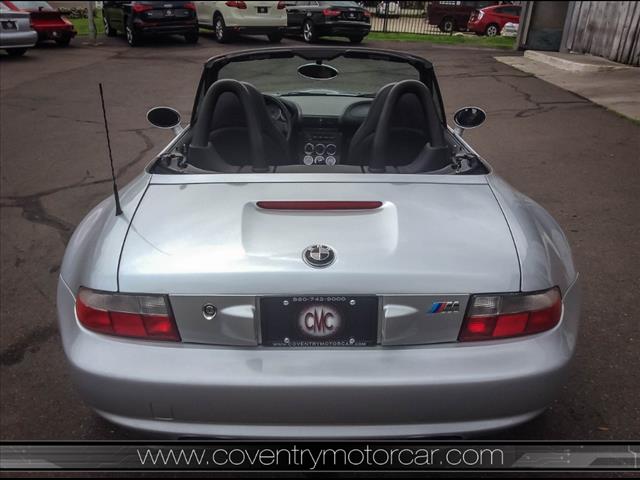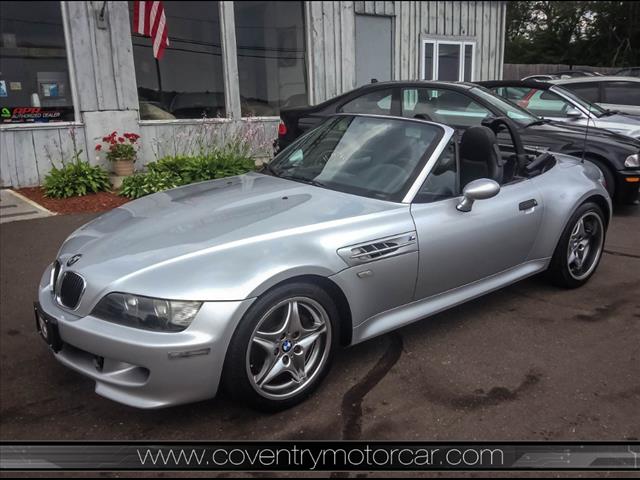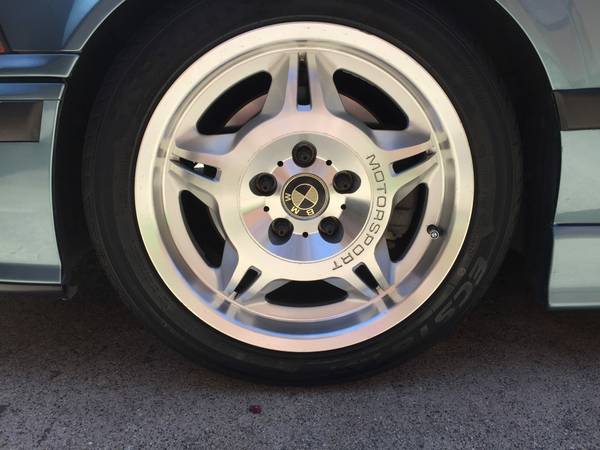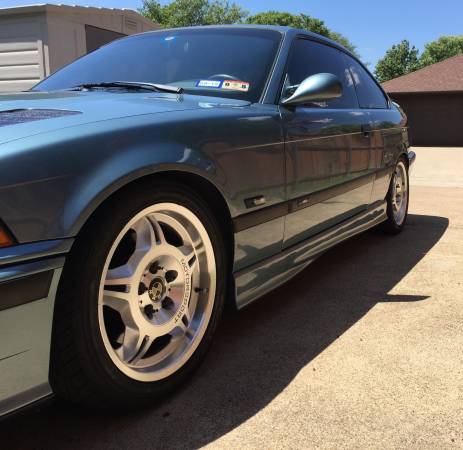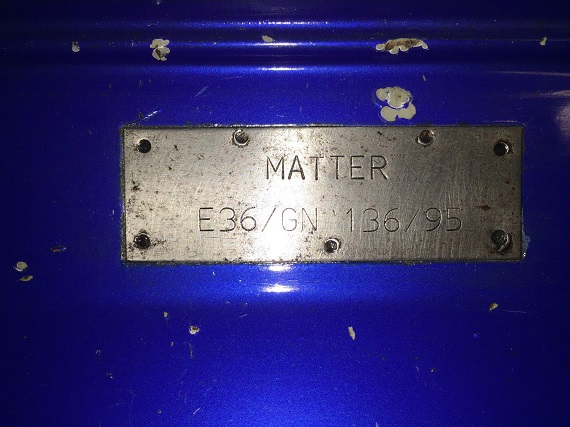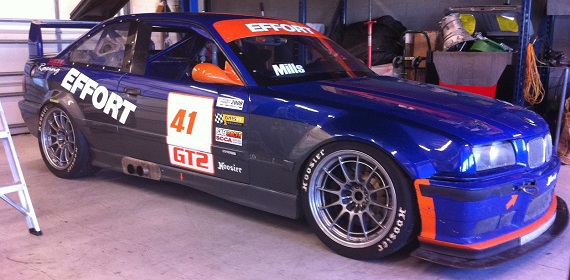A few weekends back I took a ride out into the hills of Connecticut to check out the inventory at Coventry Motorcar. It’s always worth the trip, because though on the grand scale they’re a small dealer they’ve always got some very interesting second-hand cars that you just don’t normally see gathered together at one spot anymore. Like a European-only car show, there were Porsches, BMWs, and of course Audis lining the lot. A cool Volvo C30 T5 stood out, along with a lineup of M3s as my search for a nice one continues. But the car that really grabbed my attention was a M Roadster. It wasn’t a case of the color being outstanding in this case; while some wild combinations were available on the M Roadster, Titanium Silver Metallic was the most popular option, and within that color the Black Nappa Leather was the most common interior. According to the M Roadster Buyer’s Guide, there were some 1,562 (15% of total production) ordered in Titanium, with the majority of those at 1,134 having the black interior. In fact, nearly half of all M Roadsters had all black interiors, amazingly – since it seems the really wild colors are the ones that stand out in my mind. But something else struck me as really special as soon as I saw the date; a 2002 would make it the rarest year of the M Roadster, with only 643 sold. That’s nice, but what’s nicer is what that means under the hood – the full bore, 315 horsepower S54 motivating the small roadster.
Tag: Motorsport GmbH
Bold. It’s a word not often associated with Alpina. In fact, if anything traditionally Alpinas have been anything but bold. Tasteful, certainly, but they seem to almost blend into the BMW lineup as if they were originally part of it. Indeed, today they are – offered through your local BMW dealership almost as a factory option like floor mats, you can get a monster Alpina tuned version of your car. But if bold is loosely defined as being striking or vivid, few Alpinas would really capture the attention of the general public as anything more than a normal production BMW. But the design of the E31 was bold with the wedge shape redefining production series BMWs. And this particular version of the E31 – the Alpina B12 5.7 – is pretty striking too, with giant wheels filling out the design nicely. The drivetrain of the B12 5.7 was pretty bold too, with a over 400 horsepower from a naturally aspirated V12. But it’s this singular example of the B12 that is perhaps the most bold. Painted Giallo, it’s arguably the most eye catching color to coat a E31, yet somehow suits it well with the black striping. Bold also is the strategy of trying to sell the car with only one photo and no description outside of a telephone number and some very basic details of the car. But perhaps the most bold thing about this E31 is the asking price, which despite the 90,000 miles on the clock is advertised at a stunning $221,000:
CLICK FOR DETAILS: 1995 Alpina B12 5.7 Coupe on eBay
2 CommentsThe year was 1994, and BMW brought some pre-production M3s in Dakar Yellow to various tracks around the U.S. to engage their primary target audience; enthusiasts. I still remember seeing them and being both very excited and slightly let down. From a performance standpoint, even in turned-down U.S. form the M3 was a potent small sedan. 240 horsepower was top of the small car market back then and around a track, stock for stock the E36 was easily a match for the outgoing fan-favorite E30. Coupled with an eye-searing color, it was an impressive and modern package that I loved. But I also loved the street-racer aspect of the E30, and that was something that the E36 didn’t capture well….at first. That was remedied later in 1995 with the introduction of the “CSL” version of the E36. Stripped out, available only in Alpine White and with Motorsports GmbH details throughout, the M3 Lightweight channeled both the E9 3.0CSL racers that started the M trend and captured the spirit of the E30 with its giant, adjustable rear wing and splitter. Instantly these began popping up at track events; despite the entire production run of only 126 cars, it wasn’t uncommon in 1995 and 1996 to see 4 or 5 of these special cars turn up and trounce all the other cars with ease. Since new, these limited edition M3s have always held more value than nearly all of the rest of the model run – and as prices of all things M rise, it’s no surprise that it appears the tide is carrying them up as well:
CLICK FOR DETAILS: 1995 BMW M3 Lightweight on eBay
5 CommentsNot all M3 racers are the same, though as the saying goes it’s tough to judge a book by its cover. Looking at today’s 1995 M3 one could suggest right off the bat that it looks well built but not appreciably different than most other track-ready E36 M3s that come to the market. But it’s what is underneath that really separates this M3 – one that bucks the suggestion that beauty is only skin deep. That’s because this example is one of the reported 197 M3s produced by BMW Motorsport GmbH specifically for racing when new. They were sold to the likes of dealers and well-to-dos for Group N competition – effectively, a “Showroom Stock” level of racing. But these M3s were anything but stock as they were delivered in component form to dealerships to be built by the racer in the specification that they required. Number 136 has an interesting career, having originally been raced by Frick Motorsport in the Austrian Touring Car Championship by notable BMW factory driver Dieter Quester. BMW even went so far as to have models made of the car, liveried in Red Bull colors and wearing number 3. Since then it was turned into a privateer racer where it has consistently been, rather unsurprisingly, a front runner:
